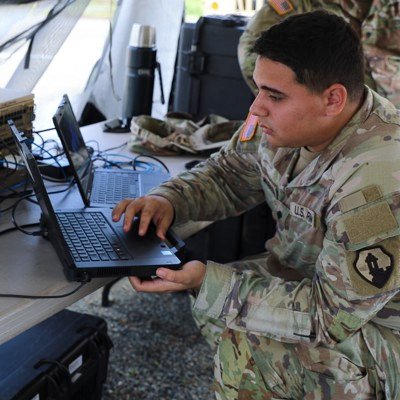Dr Cleophas Justine Pierre, renowned migration and human trafficking consultant and researcher at Dunn, Pierre, Barnett and Company Canada Limited
WITH more than 80,000 smugglers entering the Caribbean region each year it has become a haven for sex and human trafficking, according to Dr Cleophas Justine Pierre.
Based on his research, Dr Pierre pointed out that there are 83 licensed brothels, individuals reportedly paying up to US$27,000 to have sex with a virgin, and approximately 176,000 people working across about 11 major economic trafficking hubs in the Caribbean region.
A renowned migration and human trafficking consultant and researcher at Dunn, Pierre, Barnett and Company Canada Limited, Dr Pierre said the data stem from a series of Cariforum/Caricom human trafficking research projects conducted from 2019 to 2022. These include a Caricom Human Trafficking in the Caribbean Region 2019 study, a 2020 study on The impact of trafficking from Venezuela on neighbouring Caribbean states, and a study on human trafficking legislation in the Caribbean.
The findings showed that the human trafficking and migrant smuggling industry is quickly becoming one of the fastest-growing in the region, especially in Jamaica, Venezuela, Haiti, Dominican Republic, Trinidad and Tobago, Barbados, Antigua and Barbuda, Guyana, and Colombia.
“In the Caribbean, sexual violence is entwined in our lexicon and it’s entwined in our behaviour. Human trafficking is very sexist. In the Caribbean, what we know is that sexual violence against women is a form of entertainment,” Dr Pierre told the Jamaica Observer.
He noted, however, that sexual activities and violence against women are reported in every country in the region. In Grenada, approximately 62 per cent of all court cases have something to do with violence against women, he said.
Dr Pierre said, too, that trafficking is linked to at least 17 other crimes — including child pornography, drug and arms trafficking — yet the apprehension rate remains alarmingly low at around 3.07 per cent. He explained that the trade often operates on a barter system and that the network also fuels crimes such as murder-for-hire, cybercrime, kidnapping, extortion, money laundering, and widespread corruption.
Haiti and Venezuela have been identified as epicentres for migrant trafficking, which is the facilitation of illegal border crossings for financial gain; while Trinidad and Tobago and Venezuela have been identified as two of the main areas for human trafficking, which involves the recruitment, transportation, or harbouring of persons through force, fraud, or coercion, for exploitation.
“The challenge with human trafficking is that the authorities, the United Nations, and most persons, because [they] are focused on the victims they [the traffickers] are emboldened and they go after their victims. However, what law enforcement should start doing is to focus more on the traffickers. In order to stop human trafficking, you must stop the trafficker,” Dr Pierre told the Observer.
He said in their research, they spoke with 342 alleged human traffickers. They found that two traffickers can easily handle 19 victims by using different psychological tactics to break them down and make them submissive and fearful.
“We found that human trafficking is a business. When we looked at the people who are in the human trafficking business, it’s that they do it for the money because they know that it is very difficult for them to get caught. We also found that most of them are people who are in this business for a long time, and they have known each other for a very long time. They are friends, and so they get into business.
“In almost every case of human trafficking what we found was that there was always a woman involved. We don’t know why, but there’s always a woman involved in this human trafficking issue. We also found that within the Latin American region there are about 342 different human trafficking, migrant smuggling, and drug operations. In Haiti, the Dominican Republic, Jamaica, and the French Antilles, in almost every country, you will find some type of drug cartel and gangs that are involved in human trafficking,” he shared.
Dr Pierre further noted that human trafficking is a family business, and some victims often find themselves becoming traffickers due to forced submission. He added that, surprisingly, most traffickers do not have a criminal record, yet 58 per cent of them receive support from law enforcement agents such as the police, immigration officers, and border control operators. The various types of assistance offered by police include housing of victims, transportation of victims, intelligence on avoiding other law enforcement agencies, and security.
“It is a US$40-billion industry in the Caribbean. It is big business, and no one is talking about it,” said Dr Pierre.
He said sex trafficking, in particular, is “big business” in the region, with research indicating that 80 per cent of victims experienced physical or sexual violence during trafficking. These individuals are said to be between 12 and 24 years old. The findings further indicated that 70 per cent of victims are used for forced commercial sexual exploitation, of whom 85 per cent are women and girls.
“In fact, in the Caribbean now you can pay US$20,000 to have sex with a virgin, and the parents will gladly give you their daughters…the highest amount someone has paid is US$27,000 and the [victim] was at the age of 10 years old. In an interview, I met someone who had sexual intercourse at the age of seven, going on eight. It is really bad. You have no idea,” he told the Observer.
He said research revealed that many of the sexual predators who pay for these services are white men from the United States, Netherlands, Italy, France, Spain, the United Kingdom, and Canada. Data further revealed that 37.3 per cent of these men are married and take short visits to the Caribbean, lasting three to four days.
Dr Pierre noted that there is a lack of funding to fight human trafficking, and no single country can combat the issue. He called for a unified regional approach, urging governments to pool resources, develop trafficker profiles, secure funding, and invest in advanced technology to effectively address the issue.
“People do not believe that it’s happening in their country. We have poor information and data gathering; there are wide gaps in immigration and border control because most of the countries’ borders are not secure, so it’s easy to come and go,” he shared. “We also found that there is a lack of adequate intelligence on organised criminal networks.”
The researcher added that there is no established profile on human traffickers, and this is one of the biggest problems fuelling the issue in the region.
“We need to train border security personnel, we need to coordinate data, we need to have a human trafficking database, and we need to create algorithms,” said Dr Pierre.




